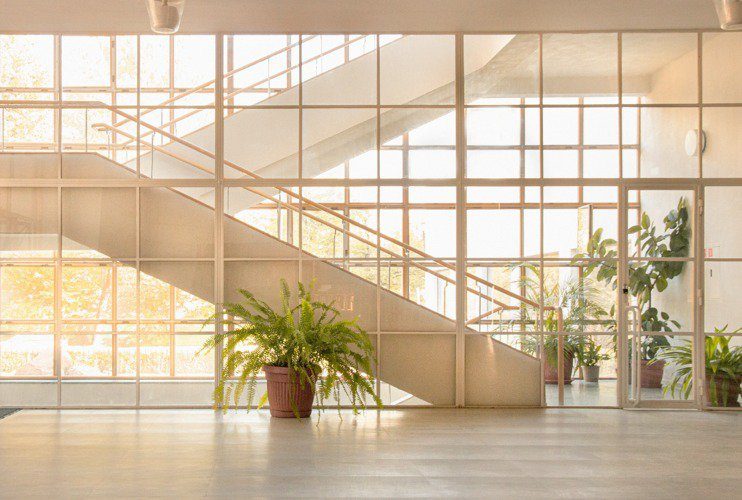Over the past year, many industries have seen changes in their infrastructure and practices, finding new inventive ways of keeping up with the times. One of the largest and often overlooked sectors is that of student housing.
In 2020, student housing facilities have had to change their operations and conditions to suit the worldwide pandemic climate. Moreover, housing a certain age demographic makes for an even trickier situation wherein the lack of control and supervision can lead to an even more challenging strategy.
Student housing facilities around the world have adopted new measures. They have implemented new technologies which can enable them to provide their students with as much ‘normal’ a student experience as possible. Student housing is, after all, an integral part of student life.
In this blog post, we look at how student housing units can optimise their spaces for the year ahead, to ensure as much normalcy as possible.
Quarantine-friendly dorms
The most prominent hurdle in running student housing units safely is arguably the struggle to ensure quarantine spaces. For students who live together and share communal facilities, this is especially hard and sometimes impossible. Rather than eliminating common areas and shared kitchens or bathrooms, a simple redesign or roster system could be highly effective. These spaces are proven to be a core value for higher education and contributing to student life. According to BDC, even well-executed socially distancing signage can go a long way and be adjusted depending on the regular updating of regulations.
“The furniture itself may adjust with high partitions that give an added layer of virus protection, social separation, and acoustic privacy.” - BDC.
Flexible and safe access
In keeping with changing regulations, students often opt to go back home or even alternate between living in their previous homes and dorms. Granting students flexible access is a vital step in giving students the freedom and allowing them to feel comfortable and in control of their own living space. Implementing the right access control system will enable students to use a Tag or their smartphone to access their rooms or apartments. This was the case in The Student Housing Company, which uses SALTO KS to manage all their properties in real-time centrally. For instance, students at University Square in Melbourne can remotely open doors that also support after-hours services. Since COVID-19, this has been used for opening the main doors for parcel deliveries and housing doors for when students are locked out. It has kept the students and staff safe by limiting human contact while still providing the same level of service and ease of access.

Touchless and hygienic environments
The key to gaining students’ confidence and allowing them to be comfortable is to create an environment of minimal contamination. While the transmission of COVID-19 through surfaces is yet to be confirmed, the virus can also spread through droplets released from sneezing or coughing. If other people inhale this or come in to contact with the droplets in their mouth, nose or eyes, or hands, they could become infected with the virus. This is why minimising contact and preventing the need to open door handles can go a long way in protecting students. Tags, automatic front door openers during certain times of the day, elevator cards, and touchless access can make all the difference. The cost of installation might deter people from implementing these systems. However, their impact lasts long enough to reap the benefits of the investment.
Lastly, cutting edge technologies such as BioCote antimicrobial coated technology effectively reduce a broad spectrum of microbes by up to 99.9%. Since 2011, SALTO Systems has incorporated the antimicrobial silver ion technology in its smart electronic lock range, electronic cylinders, locker locks, and supporting devices like wall readers. This provides integrated and lasting hygienic protection that helps regular cleaning regimes and hand hygiene.

Other ways to optimise student housing for 2021 include single-occupancy housing, air filters, and room dividers, among other new tools and innovations. At-risk students can be extended even further support, offering them prior access to single rooms and contact with support and well-being services. CNBC even recommended local governments to consider initiatives similar to the Duet Program in Boston that gives students who are earning their college degrees online, the physical space to work, a computer, internet access and local mentors, to make sure that lower-income students are given all the tools they need to ensure academic success.
To find more about SALTO KS, click here or follow us on Instagram and LinkedIn for the latest product features, team updates and news from the industry.
SALTO KS provides a flexible access control management system that requires no software installation or the added expense of a fully-wired electronic product. Modern cloud-based, wireless access control systems are easy and straightforward to use for businesses including Coworking Spaces, Coliving Buildings, Purpose Built Student Accommodation, Retail, Multi-Tenant Housing, Gyms and many more. Our best in class wireless access control solution and smart locks guarantee the efficiency for your business. Integrate smart locks, start easily managing wireless access control now!

